#american colonialism
Text
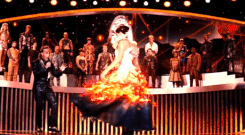
Being an Eastern European/Central-Eastern European/post-Soviet fan of the Hunger Games, I have to say that it really rubs me the wrong way when US-American/other Western fans throw a tantrum when u tell them that u see similarities between how Panem functions and how other empires than the US function, too. Like, even in criticism of imperialism, everything has to revolve solely around Americans.
I do not mean to say that Suzanne Collins did not write “The Hunger Games” trilogy and “The Ballad of Songbirds and Snakes” without taking inspiration from her geopolitical, economic and cultural context, because she obviously did, and those elements are very obviously visible in the story.
But those are not the only ones.
Another very obvious inspiration for Panem was the Roman Empire, and surprise, surprise! There are more than one European/Western empire that took/takes inspiration from Ancient Rome. Britain, France, Spain, also Russia, just to name a few. That means that people from different regions can have different associations when reading different texts of culture and that is perfectly normal. It does not mean that they are manipulated by the goddamn CIA if they don’t have the same associations as Americans while reading it 😆
And for instance, for me as an Eastern European, the first association I had while reading THG trilogy for the first time, for instance, was the USSR and modern-day Russia, simply because I come from this geopolitical context and I know it better.
Ceasar Flickerman even reminded me of several modern Russian propagandists, including Vladimir Solovyov.
The political and economic structure of Panem reminded me of the way the modern-day Russian Federation functions, with monumental Moscow at its center, and oblasts and republics basically serving as feudal provinces for the production of goods and natural resources. Regions and republics in which people often lack access to basic goods and improvements.
Heck, even President Snow very often reminded me of people like Joseph Stalin and Vladimir Putin, with his pretending to represent the people only to hold a tight grip on the state as an authoritarian/dictatorial leader.
Does that deny the American (or America-inspired) elements in THG universe? Of course not. But it certainly does not mean that others should not also see the empires that abused them and their ancestors in Suzanne Collin’s novels.
Because some elements are just common, dare I even say, universal, in many empires.
#suzanne collins#the hunger games trilogy#the hunger games#the ballad of songbirds and snakes#thg trilogy#tbosas#katniss everdeen#peeta mellark#coriolanus snow#lucy gray baird#thg#imperialism#colonialism#american imperialism#american colonialism#Russian imperialism#Russian colonialism#fuck all empires#the united states#russia#panem#british empire#french empire#spanish empire#tankies#the roman empire
99 notes
·
View notes
Text
Notes on Empire of Care by Catherine Ceniza Choy
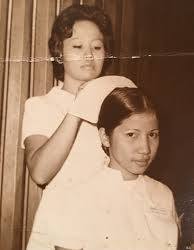
The scapegoating of Filipino nurse immigrants: Filipina Narciso and Lenora Perez are examples of two nurses who were scapegoated.
Filipino nurses with temporary work visas, H-1 visas, were exploited
Mass murder cases involving Filipino nurses included the 1996 Richard Speck massacre. Some of his victims were Filipino nurses and the only survivor was one of these Filipino nurses
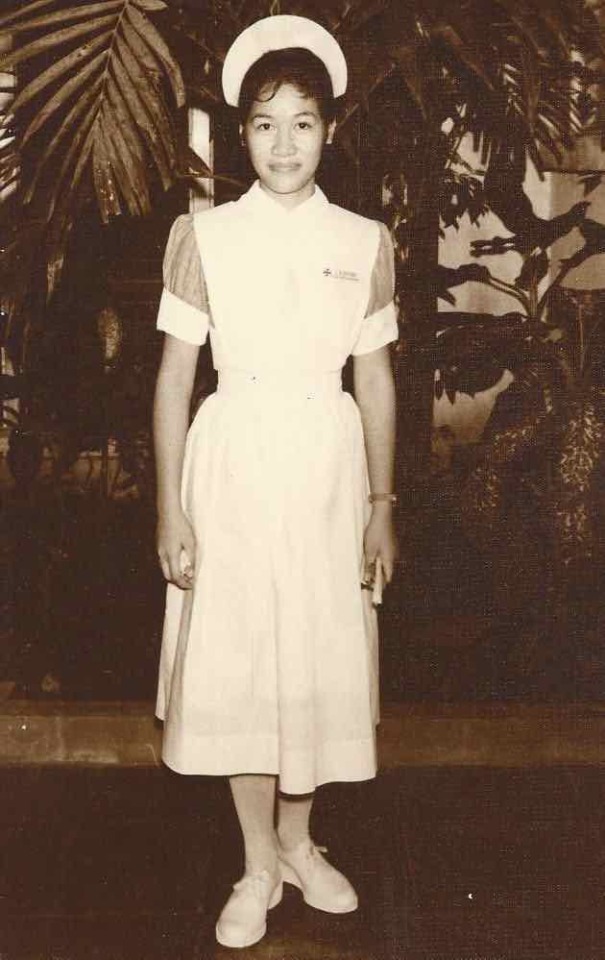
The only survivor - Luisa Silverio
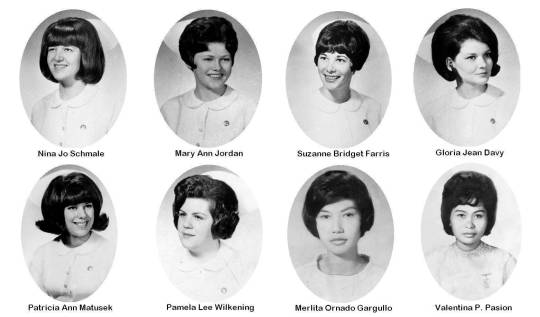
The victims
The 1975 Veterans administration hospital murders that happened in Ann Arbor, Michigan, and involved the previously mentioned nurses Narciso and Perez, bering initially convicted and then later acquitted. They were accused of poisoning and conspiracy
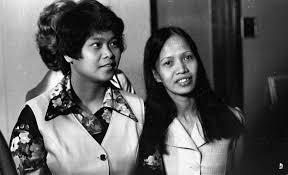
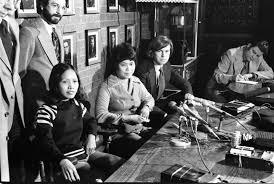
These cases reflect how US imperialism shaped the treatment that was levelled at Filipino nurses
During the late 1970s, Filipino nurse organisations emerged in order to combat the exploitation and discrimination that Filipino nurses faced
There is still a huge gap in the study of Filipino Americans. Quoted from Sucheng Chan's essay on Asian American historiography
"Despite the steady progress in Asian American historical scholarship, significant gaps remain. The most glaring is the absence of book-length studies on Filipino Americans"
American imperialism still shapes the way in which Filipinos - especially Filipino women are perceived
Jesse Ventura, an American politician in his autobiography "I ain't got no time to bleed" reminisces on his days as a Navy Seal stationed in the Philippines.
He talks about being young with a large libido, and how the abundance of Filipino women for him and his comrades to take home relieved that.
He spoke of going through less hurdles when he came to getting a Filipina to sleep with him compared to American women back home. In other words - Filipinas were easy.
This is a reflection of how US imperialism has shaped how the Philippines is viewed.
Filipino women are used in order to portray the Philippines as a feminised, hypersexual, always-willing paradise for the pleasure of Western men.
This depiction of so called "love" between Filipinos and Americans erases the long history of US violence, US domination, the colonial relationship between the US and the Philippines and the history of sexual violence perpetuated against Filipino women. Not to mention the destruction of the environment and spread of disease
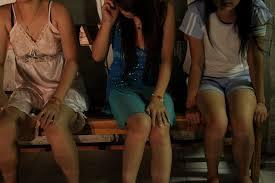
US military presence in the Philippines also helped in influencing migration patterns.
By 1970, there were more Filipino men in the US navy than the Philippine navy. This was due to the active recruitment of Filipino men into the US military
Yet another example of how the US imperialist narrative erases truths about history and the lived experiences of Filipinos:
Filipino American organisations had to convince Minnesota legislature to correct a plaque commemorating the Spanish-American war.
The plaque stated that it was honouring the fact that the war was fought to free the Philippines from the tyrannical Spanish
This is unequivocally untrue and rings back to the concepts of American exceptionalism - The US being far more "benevolent" to it's colonies than their European counterparts.
The war was fought in order to defeat the Spanish - not to liberate the Philippines.
The Philippines then fought against the US for independence thereafter
America's so called "forgetfulness" when it comes to Filipino-American history continues to hurt Filipinos.
In particular, Filipino American war Veterans who struggle to fight for their access to veterans benefits.
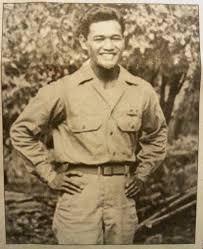
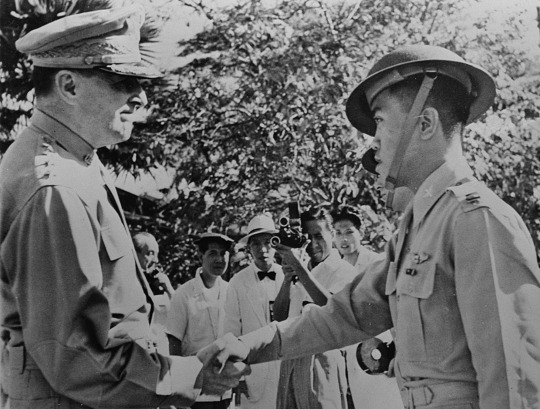
#the philippines#Philippines#Filipino#Filipino history#Philippine history#Pinoy#us imperialism#us colonialism#Us colonisation#U.S imperialism#U.S colonialism#U.S colonisation#American imperialism#American colonialism#American colonisation#Filipino American#Filipino American history#Asian history#South East Asian history#Colonialism#Imperialism#western colonialism#Western imperialism
102 notes
·
View notes
Text

I want to share this photo because I don't think a single day goes by that I don't think of it at least once.
Those are all the skulls of American Bison. They were killed not for food, not for resources*, not for sport. They were killed as a part of Native American genocide—to deny indigenous people their primary source of food. Starvation is a weapon often used to enact genocide—and the way it is done here is particularly heinous in the way it nearly sent an entire species to extinction in the process.
Here and here are articles with more details + the image credits.
*resources from the bison were gathered and sold, but it was not the intention of the mass slaughter, and there are many instances where bison corpses were left to rot
#native american genocide#genocide#indigenous genocide#colonialism#colonial violence#american history#american colonialism#history#us history#us colonialism#native american history#cw:#bones#skulls#animal death#violence
26 notes
·
View notes
Text
America's Boy: A Century of Colonialism in the Philippines - free download ZLibrary

Perhaps no other couple is as emblematic of American Imperialism as the Marcoses; America's Boy is their story.
America's Boy: A Century of Colonialism in the Philippines
free download ZLibrary
A narrative history of the U.S.-supported dictatorship that came to define the Philippines. Ferdinand and Imelda Marcos presented themselves as the reincarnation of a primal couple from Filipino mythology. Ferdinand reinvented himself as a matchless fighter against the Japanese, and Time magazine hailed him as a hero. He was the strongman, the dictator, welcomed at the White House by Lyndon B. Johnson, Nixon, Reagan, and the C.I.A..-America's Boy.
For twenty-one years he and Imelda dominated the Philippines. In the , a "democratic revolution" replaced them with Corazon Aquino, who, in turn, was followed by Fidel Ramos, Imelda's cousin. Nothing changed: the world applauded, the shadow play went on.
James Hamilton-Paterson has gathered astonishing information from senators, cronies, rivals, and Marcos family members, including Imelda. Covering the entire one-hundred-year history of U. S. involvement in the Philippines, he offers a devastating vision of the price Filipinos paid for dictatorship.
Perhaps no other couple is as emblematic of American Imperialism as the Marcoses; America's Boy is their story.
Passionate, deeply researched, and haunting, it is "a riveting read" (The Guardian [London]) by one of the language's best stylists.
America's Boy: A Century of Colonialism in the Philippines - free download ZLibrary
Categories: History - Asian History
Year: 1999
Publisher: Henry Holt and Company
Language: english
Pages: 496
ISBN 10: 0805061185
ISBN 13: 9780805061185
File: PDF, 26.77 M
#America's Boy: A Century of Colonialism in the Philippines#american colonialism#phillipines#us military#imperialism#us colonialism#us imperialism
4 notes
·
View notes
Text

like to charge reblog to cast
#yemen#jerusalem#tel aviv#current events#palestine#free palestine#gaza#free gaza#news on gaza#palestine news#news update#war news#war on gaza#end the occupation#end the apartheid#apartheid#settler colonialism#american imperialism
58K notes
·
View notes
Text
29/04/24: reblogs have been turned off for a few days. Check replies.
17/12/23 this masterlist has been completely, vetted, revamped and reformatted with free access to all reading and viewing material. It will be updated and edited periodically so please try and reblog the original post if you're able.
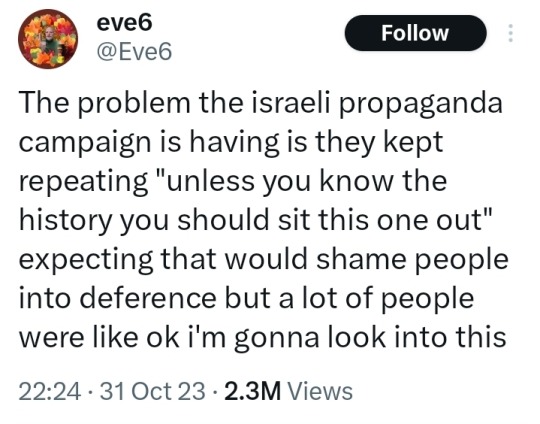
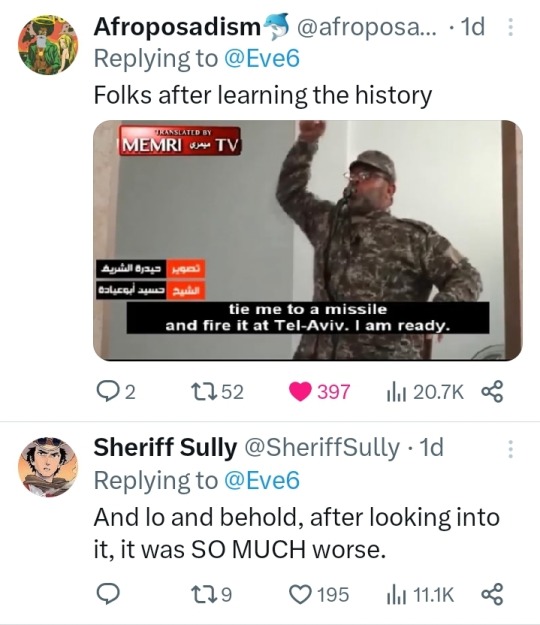

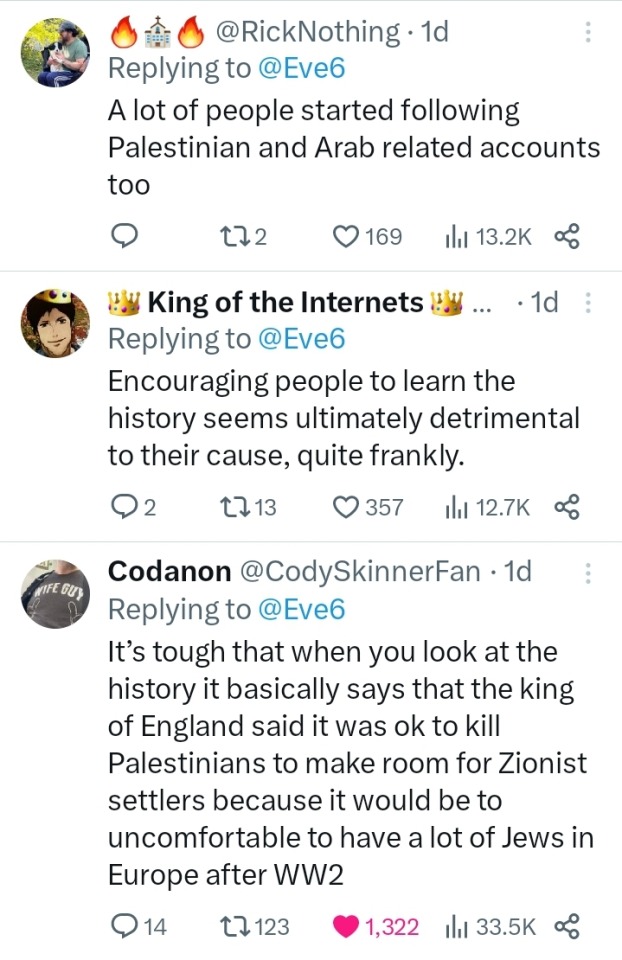
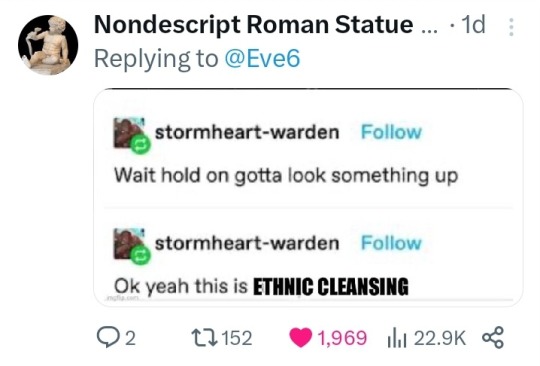
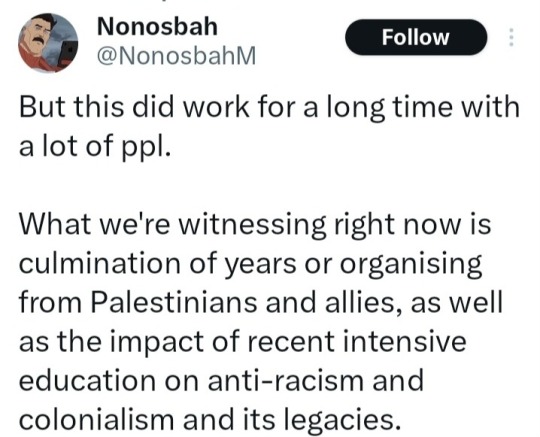
The Big Damn List Of Stuff They Said You Didn't Know
(Yes, it's a lot. Just choose your preferred medium and then pick one.)
Podcasts
Backgrounders and Quick Facts
Interactive Maps
Teach-Out Resources
Reading Material (free)
Films and Documentaries (free)
Non-Governmental Organizations
Social Media
How You Can Help
Podcasts
Cocktails & Capitalism: The Story of Palestine Part 1, Part 3
It Could Happen Here: The Cheapest Land is Bought with Blood, Part 2, The Balfour Declaration
Citations Needed: Media narratives and consent manufacturing around Israel-Palestine and the Gaza Siege
The Deprogram: Free Palestine, ft. decolonizatepalestine.com.
Backgrounders and Quick Facts
The Palestine Academy: Palestine 101
Institute for Middle East Understanding: Explainers and Quick Facts
Interactive Maps
Visualizing Palestine
Teach-Out Resources
1) Cambridge UCU and Pal Society
Palestine 101
Intro to Palestine Film + Art + Literature
Resources for Organising and Facilitating)
2) The Jadaliya YouTube Channel of the Arab Studies Institute
Gaza in Context Teach-in series
War on Palestine podcast
Updates and Discussions of news with co-editors Noura Erakat and Mouin Rabbani.
3) The Palestine Directory
History (virtual tours, digital archives, The Palestine Oral History Project, Documenting Palestine, Queering Palestine)
Cultural History (Palestine Open Maps, Overdue Books Zine, Palestine Poster Project)
Contemporary Voices in the Arts
Get Involved: NGOs and campaigns to help and support.
3) PalQuest Interactive Encyclopedia of the Palestine Question.
4) The Palestine Remix by Al Jazeera
Books and Articles
Free reading material
My Gdrive of Palestine/Decolonization Literature (nearly all the books recommended below + books from other recommended lists)
Five free eBooks by Verso
Three Free eBooks on Palestine by Haymarket
LGBT Activist Scott Long's Google Drive of Palestine Freedom Struggle Resources
Recommended Reading List
Academic Books
Edward Said (1979) The Question of Palestine, Random House
Ilan Pappé (2002)(ed) The Israel/Palestine Question, Routledge
Ilan Pappé (2006) The Ethnic Cleansing of Palestine, OneWorld Publications
Ilan Pappé (2011) The Forgotten Palestinians: A History of the Palestinians in Israel, Yale University Press
Ilan Pappé (2015) The Idea of Israel: A History of Power and Knowledge, Verso Books
Ilan Pappé (2017) The Biggest Prison On Earth: A History Of The Occupied Territories, OneWorld Publications
Ilan Pappé (2022) A History of Modern Palestine, Cambridge University Press
Rosemary Sayigh (2007) The Palestinians: From Peasants to Revolutionaries, Bloomsbury
Andrew Ross (2019) Stone Men: the Palestinians who Built Israel, Verso Books
Rashid Khalidi (2020) The Hundred Years’ War on Palestine: A History of Settler Colonialism and Resistance 1917–2017
Ariella Azoulay (2011) From Palestine to Israel: A Photographic Record of Destruction and State Formation, 1947-1950, Pluto Press
Ariella Azoulay and Adi Ophir (2012) The One-State Condition: Occupation and Democracy in Israel/Palestine, Stanford University Press.
Jeff Halper (2010) An Israeli in Palestine: Resisting Dispossession, Redeeming Israel, Pluto Press
Jeff Halper (2015) War Against the People: Israel, the Palestinians and Global Pacification
Jeff Halper (2021) Decolonizing Israel, Liberating Palestine: Zionism, Settler Colonialism, and the Case for One Democratic State, Pluto Press
Anthony Loewenstein (2023) The Palestine Laboratory: How Israel exports the Technology of Occupation around the World
Noura Erakat (2019) Justice for Some: Law and the Question of Palestine, Stanford University Press
Neve Gordon (2008) Israel’s Occupation, University of California Press
Joseph Massad (2006) The Persistence of the Palestinian Question: Essays on Zionism and the Palestinians, Routledge
Memoirs
Edward Said (1986) After the Last Sky: Palestine Lives, Columbia University PEdward Saidress
Edward Said (2000) Out of Place; A Memoir, First Vintage Books
Mourid Barghouti (2005) I saw Ramallah, Bloomsbury
Hatim Kanaaneh (2008) A Doctor in Galilee: The Life and Struggle of a Palestinian in Israel, Pluto Press
Raja Shehadeh (2008) Palestinian Walks: Into a Vanishing Landscape, Profile Books
Ghada Karmi (2009) In Search of Fatima: A Palestinian Story, Verso Books
Vittorio Arrigoni (2010) Gaza Stay Human, Kube Publishing
Ramzy Baroud (2010) My Father Was a Freedom Fighter: Gaza's Untold Story, Pluto Press
Izzeldin Abuelaish (2011) I Shall Not Hate: A Gaza Doctor’s Journey on the Road to Peace and Human Dignity, Bloomsbury
Atef Abu Saif (2015) The Drone Eats with Me: A Gaza Diary, Beacon Press
Anthologies
Voices from Gaza - Insaniyyat (The Society of Palestinian Anthropologists)
Letters From Gaza • Protean Magazine
Salma Khadra Jayyusi (1992) Anthology of Modern Palestinian Literature, Columbia University Press
ASHTAR Theatre (2010) The Gaza Monologues
Refaat Alreer (ed) (2014) Gaza Writes Back, Just World Books
Refaat Alreer, Laila El-Haddad (eds) (2015) Gaza Unsilenced, Just World Books
Cate Malek and Mateo Hoke (eds)(2015) Palestine Speaks: Narrative of Life under Occupation, Verso Books
Jehad Abusalim, Jennifer Bing (eds) (2022) Light in Gaza: Writings Born of Fire, Haymarket Books
Short Story Collections
Ghassan Kanafani, Hilary Kilpatrick (trans) (1968) Men in the Sun and Other Palestinian Stories, Lynne Rienner Publishers
Ghassan Kanafani, Barbara Harlow, Karen E. Riley (trans) (2000) Palestine’s Children: Returning to Haifa and Other Stories, Lynne Rienner Publishers
Atef Abu Saif (2014) The Book of Gaza: A City in Short Fiction, Comma Press
Samira Azzam, Ranya Abdelrahman (trans) (2022) Out Of Time: The Collected Short Stories of Samira Azzam
Sonia Sulaiman (2023) Muneera and the Moon; Stories Inspired by Palestinian Folklore
Essay Collections
Edward W. Said (2000) Reflections on Exile and Other Essays, Harvard University Press
Salim Tamari (2008) Mountain against the Sea: Essays on Palestinian Society and Culture, University of California Press
Fatma Kassem (2011) Palestinian Women: Narratives, histories and gendered memory, Bloombsbury
Ramzy Baroud (2019) These Chains Will Be Broken: Palestinian Stories of Struggle and Defiance in Israeli Prisons, Clarity Press
Novels
Sahar Khalifeh (1976) Wild Thorns, Saqi Books
Liyana Badr (1993) A Balcony over the Fakihani, Interlink Books
Hala Alyan (2017) Salt Houses, Harper Books
Susan Abulhawa (2011) Mornings in Jenin, Bloomsbury
Susan Abulhawa (2020) Against the Loveless World, Bloomsbury
Graphic novels
Joe Sacco (2001) Palestine
Joe Sacco (2010) Footnotes in Gaza
Naji al-Ali (2009) A Child in Palestine, Verso Books
Mohammad Sabaaneh (2021) Power Born of Dreams: My Story is Palestine, Street Noise Book*
Poetry
Fady Joudah (2008) The Earth in the Attic, Sheridan Books,
Ghassan Zaqtan, Fady Joudah (trans) (2012) Like a Straw Bird It Follows Me and Other Poems, Yale University Press
Hala Alyan (2013) Atrium: Poems, Three Rooms Press*
Mohammed El-Kurd (2021) Rifqa, Haymarket Books
Mosab Abu Toha (2022) Things You May Find Hidden in My Ear: Poems from Gaza, City Lights Publishers
Tawfiq Zayyad (2023) We Are Here to Stay, Smokestack Books*
The Works of Mahmoud Darwish
Poems
Rafeef Ziadah (2011) We Teach Life, Sir
Nasser Rabah (2022) In the Endless War
Refaat Alareer (2011) If I Must Die
Hiba Abu Nada (2023) I Grant You Refuge/ Not Just Passing
[All books except the ones starred are available in my gdrive. I'm adding more each day. But please try and buy whatever you're able or borrow from the library. Most should be available in the discounted Free Palestine Reading List by Pluto Press, Verso and Haymarket Books.]
Human Rights Reports & Documents
Information on current International Court of Justice case on ‘Legal Consequences arising from the Policies and Practices of Israel in the Occupied Palestinian Territory, including East Jerusalem’
UN Commission of Inquiry Report 2022
UN Special Rapporteur Report on Apartheid 2022
Amnesty International Report on Apartheid 2022
Human Rights Watch Report on Apartheid 2021
Report of the United Nations Fact-Finding Mission on the Gaza Conflict’ 2009 (‘The Goldstone Report’)
Advisory Opinion on the Legal Consequences of the Construction of a Wall in the Occupied Palestinian Territory, International Court of Justice, 9 July 2004
Films
Documentaries
Jenin, Jenin (2003) dir. Mohammed Bakri
Massacre (2005) dir. Monica Borgmann, Lokman Slim, Hermann Theissen
Slingshot HipHop (2008) dir. Jackie Reem Salloum
Waltz with Bashir (2008) dir. Ari Folman † (also on Amazon Prime)
Tears of Gaza (2010) dir. Vibeke Løkkeberg (also on Amazon Prime)
5 Broken Cameras (2011) dir. Emad Burnat (also on Amazon Prime)
The Gatekeepers (2012) dir. Dror Moreh (also on Amazon Prime)
The Great Book Robbery (2012) | Al Jazeera English
Al Nakba (2013) | Al Jazeera (5-episode docu-series)
The Village Under the Forest (2013) dir. Mark J. Kaplan
Where Should The Birds Fly (2013) dir. Fida Qishta
Naila and the Uprising (2017) (also on Amazon Prime)
GAZA (2019) dir. Andrew McConnell and Garry Keane
Gaza Fights For Freedom (2019) dir. Abby Martin
Little Palestine: Diary Of A Siege (2021) dir. Abdallah Al Khatib
Palestine 1920: The Other Side of the Palestinian Story (2021) | Al Jazeera World Documentary
Gaza Fights Back (2021) | MintPress News Original Documentary | dir. Dan Cohen
Innocence (2022) dir. Guy Davidi
Short Films
Fatenah (2009) dir. Ahmad Habash
Gaza-London (2009) dir. Dina Hamdan
Condom Lead (2013) dir. Tarzan Nasser, Arab Nasser
OBAIDA (2019) | Defence for Children Palestine
Theatrical Films
Divine Intervention (2002) | dir. Elia Suleiman (also on Netflix)
Paradise Now (2005) dir Hany Abu-Assad (also on Amazon Prime)
Lemon Tree (2008) (choose auto translate for English subs) (also on Amazon Prime)
It Must Be Heaven (2009) | dir. Elia Suleiman †
The Promise (2010) mini-series dir. Peter Kosminsky (Part 1, Part 2, Part 3, Part 4)
Habibi (2011)* dir. Susan Youssef
Omar (2013)* dir. Hany Abu-Assad †
3000 Nights (2015)* dir. Mai Masri
Foxtrot (2017) dir. Samuel Maoz (also on Amazon Prime)
The Time that Remains (2019) dir. Elia Suleiman †
Gaza Mon Amour (2020) dir. Tarzan Nasser, Arab Nasser †
The Viewing Booth (2020) dir. Ra'anan Alexandrowicz (on Amazon Prime and Apple TV)
Farha (2021)* | dir. Darin J. Sallam
Palestine Film Institute Archive
All links are for free viewing. The ones marked with a star (*) can be found on Netflix, while the ones marked † can be downloaded for free from my Mega account.
If you find Guy Davidi's Innocence anywhere please let me know, I can't find it for streaming or download even to rent or buy.
In 2018, BDS urged Netflix to dump Fauda, a series created by former members of IOF death squads that legitimizes and promotes racist violence and war crimes, to no avail. Please warn others to not give this series any views. BDS has not called for a boycott of Netflix. ]
Planning to link two separate posts here listing all the books in my drive and all the films I couldn't include here. Check back for updates.
NGOs
The Boycott, Divestment, Sanctions (BDS) Movement
Medical Aid for Palestinians
Euro-Mediterranean Human Rights Monitor
Palestine Defence for Children International
Palestinian Feminist Collective
Al-Shabaka: The Palestinian Policy Network
Addameer Prisoner Support and Human Rights Association
Institute for Palestine Studies
Al Haq
Artists for Palestine
The Palestine Museum
Jewish Currents
B’Tselem
DAWN
Social Media
Palestnians on Tumblr
@el-shab-hussein
@killyfromblame
@apollos-olives
@fairuzfan
@palipunk
@sar-soor
@nabulsi
@ibtisams
@wearenotjustnumbers2
@90-ghost (is in Gaza right now. Please donate to his GFM and boost it.)
@tamarrud
Allies and advocates (not Palestinian)
@bloglikeanegyptian beautiful posts that read like op-eds
@vyorei daily news roundups
@luthienne resistance through prose
@decolonize-the-left scoop on the US political plans and impacts
@feluka
(Please don't expect any of these blogs to be completely devoted to Palestine allyship; they do post regularly about it but they're still personal blogs and post whatever else they feel like. Do not harrass them.)
Gaza journalists
Motaz Azaiza IG: @motaz_azaiza | Twitter: @azaizamotaz9 | TikTok: _motaz.azaiza (left Gaza as of Jan 23)
Bisan Owda IG and TikTok: wizard_bisan1 | Twitter: @wizardbisan
Saleh Aljafarawi IG: @saleh_aljafarawi | Twitter: @S_Aljafarawi | TikTok: @saleh_aljafarawi97
Plestia Alaqad IG: @byplestia | TikTok: @plestiaaqad (left Gaza)
Wael Al-Dahdouh IG: @wael_eldahdouh | Twitter: @WaelDahdouh (left Gaza as of Jan 13)
Hind Khoudary IG: @hindkhoudary | Twitter: @Hind_Gaza
Ismail Jood IG and TikTok: @ismail.jood (announced end of coverage on Jan 25)
Yara Eid IG: @eid_yara | Twitter: @yaraeid_
Eye on Palestine IG: @eye.on.palestine | Twitter: @EyeonPalestine | TikTok: @eyes.on.palestine
Muhammad Shehada Twitter: @muhammadshehad2
(Edit: even though some journos have evacuated, the footage up to the end of their reporting is up on their social media, and they're also doing urgent fundraisers to get their families and friends to safety. Please donate or share their posts.)
News organisations
The Electronic Intifada Twitter: @intifada | IG: @electronicintifada
Quds News Network Twitter and Telegram: @QudsNen | IG: @qudsn (Arabic)
Times of Gaza IG: @timesofgaza | Twitter: @Timesofgaza | Telegram: @TIMESOFGAZA
The Palestine Chronicle Twitter: @PalestineChron | IG: @palestinechron | @palestinechronicle
Al-Jazeera Twitter: @AJEnglish | IG and TikTok: @aljazeeraenglish, @ajplus
Middle East Eye IG and TikTok: @middleeasteye | Twitter: @MiddleEastEye
Democracy Now Twitter and IG: @democracynow TikTok: @democracynow.org
Haaretz* Twitter: @Haaretz | IG: haaretzcom
Mondoweiss IG and TikTok: @mondoweiss | Twitter: @Mondoweiss
The Intercept Twitter and IG: @theintercept
MintPress Twitter: @MintPressNews | IG: mintpress
Novara Media Twitter and IG: @novaramedia
Truthout Twitter and IG: @truthout
[*Please note that Haaretz is an Israeli Liberal Zionist newspaper and heavily propagandized against Palestine. It's included here only as a Zionist critic of the Israeli government and IDF from within Israel.]
Palestnians on Other Social Media
Mouin Rabbani: Middle East analyst specializing in the Arab-Israeli conflict and Palestinian affairs. Twitter: @MouinRabbani
Noura Erakat: Legal scholar, human rights attorney, specialising in Israeli–Palestinian conflict. Twitter: @4noura | IG: @nouraerakat | (http://www.nouraerakat.com/)
Hebh Jamal: Journalist in Germany. IG and Twitter: @hebh_jamal
Ghada Sasa: PhD candidate in International Relations, green colonialism, and Islam in Canada. Twitter: @sasa_ghada | IG: @ghadasasa48
Taleed El Sabawi: Assistant professor of law and researcher in public health. Twitter: @el_sabawi | IG
Lexi Alexander: Filmmaker and activist. Twitter: @LexiAlex | IG: @lexialexander1
Mariam Barghouti: Writer, blogger, researcher, and journalist. Twitter: @MariamBarghouti | IG: @mariambarghouti
Rasha Abdulhadi: Queer poet, author and cultural organizer. Twitter: @rashaabdulhadi
Mohammed el-Kurd: Writer and activist from Jerusalem. IG: @mohammedelkurd | Twitter: @m7mdkurd
Ramy Abdu: Founder and Chairman of the Euro-Mediterranean Human Rights Monitor. Twitter: @RamyAbdu
Subhi: Founder of The Palestine Academy website. IG: @sbeih.jpg |TikTok @iamsbeih | Twitter: @iamsbeih
Allies
Lowkey (Kareem Dennis): Rapper, activist, video and podcast host for MintPress. Twitter: @LowkeyOnline IG: @lowkeyonline
Francesca Albanese: UN Special Rapporteur on the Occupied Territories. Twitter: @FranceskAlbs
Sana Saeed: Journalist and media critic, host and senior producer at Al-Jazeera Plus. IG: @sanaface | Twitter: @SanaSaeed
Shailja Patel: Poet, playwright, activist, founding member of Kenyans For Peace, Truth and Justice. Twitter: @shailjapatel
Jairo I. Fúnez-Flores: Researcher in curriculum studies, decolonial theory, social movements. Twitter: @Jairo_I_Funez
Jack Dodson: Journalist and Filmmaker. Twitter: @JackDodson IG: @jdodson4
Imani Barbarin: Writer, public speaker, and disability rights activist. IG: @crutches_and_spice | Twitter: @Imani_Barbarin | TikTok: @crutches_and_spice
Jewish Allies
Katie Halper: US comedian, writer, filmmaker, podcaster, and political commentator. IG and Twitter: @kthalps
Amanda Gelender: Writer. Twitter: @agelender | (https://agelender.medium.com/)
Yoav Litvin: Jerusalem-born Writer and Photographer. IG and Twitter: @nookyelur | (yoavlitvin.com)
Alana Lentin: Professor of Cultural and Social Analysis at Western Sydney University. Twitter: @alanalentin
Gideon Levy: anti-Zionist Israeli journalist and activist. Twitter: @gideonle
How You Can Help Palestine
How to be an Ally 101
URGENT‼️📢: Global Strike Guide
If any links are broken let me know. Or pull up the current post to check whether it's fixed.
"Knowledge is Israel's worst enemy. Awareness is Israel's most hated and feared foe. That's why Israel bombs a university: it wants to kill openness and determination to refuse living under injustice and racism."
— Dr. Refaat Alareer, (martyred Dec 6, 2023)
From River To The Sea Palestine Will Be Free 🇵🇸🇵🇸🇵🇸
-----
Edit 1: took the first video down because turns out the animator is a terf and it links to her blog. Really sorry for any distress.
Edit 2: All recommended readings + Haymarket recommendations + essential decolonization texts have been uploaded to my linked gdrive. I will adding more periodically. Please do buy or check them out from the library if possible, but this post was made for and by poor and gatekept Global South bitches like me.
Some have complained about the memes being disrespectful. You're actually legally obligated to make fun of Israeli propaganda and Zionists. I don't make the rules.
Edit 3: "The river to the sea" does not mean the expulsion of Jews from Palestine. Believing that is genocide apologia.
Edit 4: Gazans have specifically asked us to put every effort into pushing for a ceasefire instead of donations. "Raising humanitarian aid" is a grift Western governments are pushing right now to deflect from the fact that they're sending billions to Israel to keep carpet bombing Gazans. As long as the blockades are still in place there will never be enough aid for two million people. (UPDATE: PLEASE DONATE to the Gazan's GoFundMe fundraisers to help them buy food and get out of Rafah into Egypt. E-SIMs, food and medical supplies are also essential. Please donate to the orgs linked in the How You Can Help. Go on the strikes. DO NOT STOP PROTESTING.)
Edit 5: Google drive link for academic books folder has been fixed. Also have added a ton of resources to all the other folders so please check them out.
Edit 6: Added interactive maps, Jadaliya channel, and masterlists of donation links and protest support and of factsheets.
The twitter accounts I reposted as it was given to me and I just now realized it had too many Israeli voices and almost none of the Palestinians I'm following, so it's being edited. Check back for more. I also removed sources like Jewish Voices of Peace and Breaking the Silence that do good work but have come under fair criticism from Palestinians.
Edit 7: Complete reformatting
Edit 8: Complete revamping of the social media section. It now reflects my own following list.
Edit 9: removed some more problematic people from the allies list. Remember that the 2SS is a grift that's used to normalize violence and occupation, kids. Supporting the one-state solution is lowest possible bar for allyship. It's "Free Palestine" not "Free half of Palestine and hope Israel doesn't go right back to killing them".
Edit 10: added The Palestine Directory + Al Jazeera documentary + Addameer. This "100 links per post" thing sucks.
Edit 11: more documentaries and films
Edit 12: reformatted reading list
Edit 13: had to remove @palipunk's masterlist to add another podcast. It's their pinned post and has more resources Palestinian culture and crafts if you want to check it out
#free palestine#palestine resources#palestine reading list#decolonization#israel palestine conflict#israel palestine war#british empire#american imperialism#apartheid#social justice#middle east history#MENA#arab history#anti zionism#palestinian art#palestinian history#palestinian culture#palestinian genocide#al nakba#ethnic cleansing#war crimes#racism#imperialism#colonialism#british colonialism#knee of huss#ask to tag#Youtube
77K notes
·
View notes
Text



#feminist#feminism#social justice#western imperialism#american imperialism#colonialism#neocolonialism#settler violence#africa#enslavement#congoisbleeding#colonial violence#history#exploitation
58K notes
·
View notes
Text
Protect Niger at all costs.
Side note: the US pays $63M in rental fees to Djibouti. That's just one country. We have over 800 bases worldwide and our taxes are paying for them.
#niger#djibouti#africa#african leaders#using our tax dollars#us foreign policy#american imperialism#american colonialism#western colonialism#colonial violence#colonialism
0 notes
Text
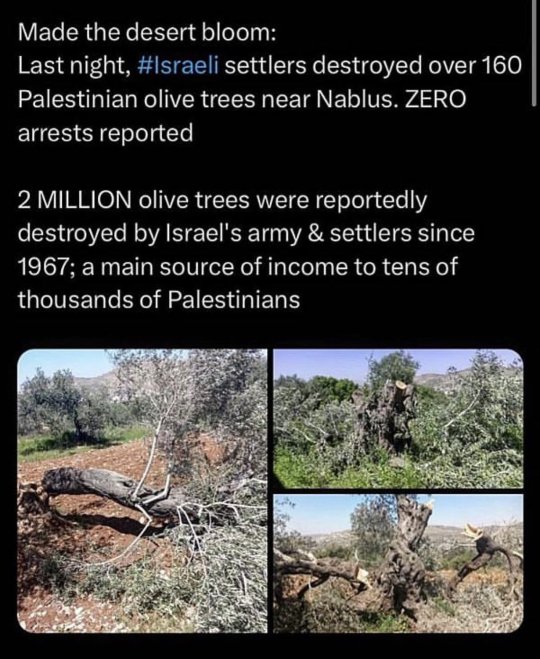
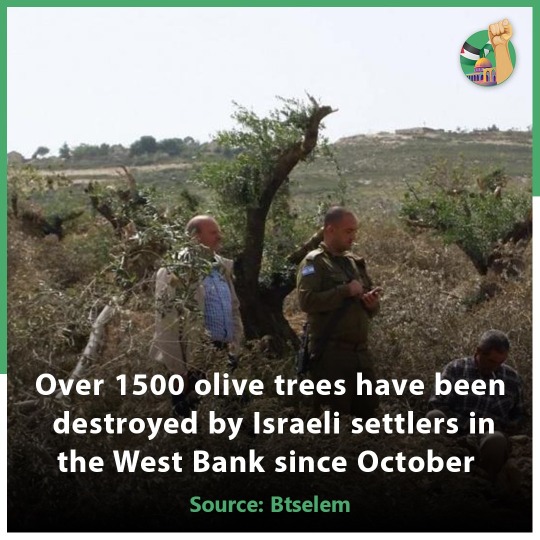
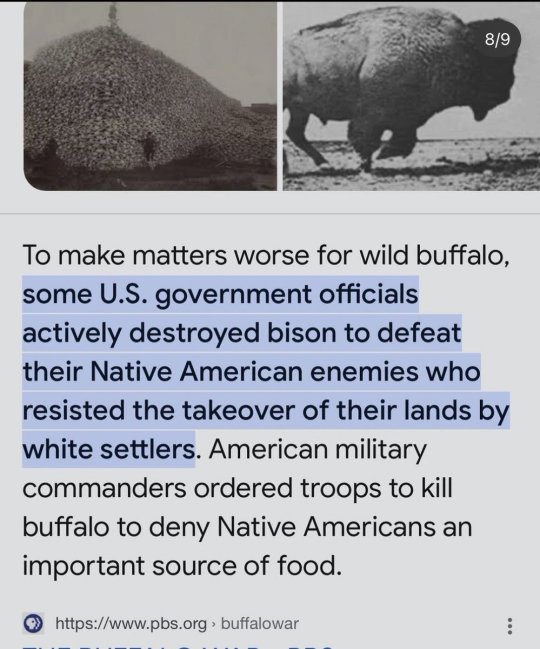
US literally is a teaching guide for war crimes.
#free palestine#politics#news#palestine#west bank#democrats#republicans#trees#botany#nature#native americans#military#woc#poc#women of color#colonialism#colonization#usa
8K notes
·
View notes
Note
correct me if i’m wrong cos i don’t watch dune.. but i’ve seen people call paul a tragic character. except isn’t he a whole white coloniser tricking indigenous poc into believing he’s a prophet to serve his own interests? that’s inherently evil that cannot be a tragic character imo
so yes that is correct that is what happens. the tragedy is that he is a sixteen year old boy who gets a vision of this happening and he is TERRIFIED and absolutely does not want this to happen at all. He does not want the holy war he does not want to be the chosen one he initially very much wants to fight alongside the fremen as equals trying to liberate themselves from their current colonizer without becoming the messiah because they have common political cause.
And then the entire second half of the first book (and the second movie) are about the concessions he makes to himself bit by bit by bit (well it’s the only way to save his mom and sister. well it’s the only way to prevent nuclear war. well he does want his revenge. well maybe he IS special.) Until by the end he has lost 100% of his humanity, fully wants to be the messiah and is willing to manipulate people into thinking so, and has declared himself duke of arrakis in his father’s name and made a play for the imperial throne.
you’re right that it’s evil. the book and these movies agree with you. the tragedy is watching a child who desperately wanted to avoid this slowly completely lose himself to it anyways. i don’t think “tragic” and “evil” are inherently mutually exclusive.
#so dune is thematically complicated. because it IS very much anti white savior and anti colonial.#but the author white american weirdo that he is is still throwing a lot of orientalism out while communicating those themes#dune
7K notes
·
View notes
Text
Western tankies see a Serbian, openly pro-Russian, pro-Kremlin, pro-Putin demonstration in Belgrade and be like: “Is this anti-NATO?” 🤡
Like seriously, we all know that NATO did wrong in history, but not everyone who is against NATO is suddenly all wonderful and perfect. Look at Moscow, look at Beijing, at Pyongyang. Heck, look at Belgrade. Learn about Serbian crimes in the 1990s Yugoslavian war. Serbs literally r@ped thousands of Bosnian Muslim women so that they could impregnate them and breed Serbs that would in the future turn against their Bosnian mothers and create Great Orthodox Christian Serbia in the Balkans. I am not inventing that, this is literally a part of contemporary Serbian nationalism. This is the ideology that motivated them to do so. Hundreds of children in modern Bosnia and Herzegovina live with the stigma of being a child born out of war r@pe and have the word “unknown” in the label in their documents where their biological fathers’ names should be.
Denial of Russian, Serbian or any other country’s crimes just because it is against the West/the US/NATO does not make you smart. It makes you sound like you only care about someone’s suffering as long as their perpetrator is some Western power. It makes you sound like, you are against the g3nocide of Palestinians, but Crimean Tatars, Chechens and Circassians can be subjugated to g3nocide as long as their perpetrator is not the US. It makes you sound like you are against war r@pe crimes of American soldiers in Vietnam (or any other country), but Soviet soldiers could mass r@pe Polish and German girls and women during and after WW2 - just because they were communists and not American. It makes you sound like you are against the destruction of Indigenous lands in the Americas, but as long as the destruction is happening in Sakha (Yakutia), Buryatia, Chuvashia, Khanty-Mansy region or any other part of the Russian Federation where Indigenous people live, you don’t give a sh*t. (Heck, most of you who attack me on this argument assume that I’ve invented the names of those tribes/ethnic groups/nations - like, what’s the problem with opening Google Scholar, leftist Karens?)
Generally, it makes you sound like you have extremely double standards yourselves, just like the ones you criticize. And it doesn't make you any much better than them.
Seriously, people, listening to Eastern Europeans, Central Asians, Siberians, (actual) Caucasians and other post-Soviet people would do you so much good.
#russian colonialism#russian imperialism#soviet colonialism#soviet imperialism#russia#american imperialism#american colonialism#the united states#eastern europeans of tumblr#eastern europe#central asia#Caucasus#ural mountains#siberia#vostok#listen to post-Soviet people#stand with ukraine#seriously nobody is denying American colonialism#done with being silenced#would any of you do that if we fit your idea of unprivileged people?#Honestly i’m done with “but what about America/NATO/the West etc.” argument#It’s just whataboutism
24 notes
·
View notes
Text
Notes on "Empire of Care : Nursing and Migration in Filipino American History"
Previous post:
Filipino nurse Patrocinio Montellano was a nurse who was interviewed for this book

Art by Filipino-American artist MYSTERIOUSxBEAUTY
She was an accomplished woman, furthering her nursing career in the US by taking post-graduate courses.
She eventually secured deployment through the aid of Americans such as William Musgrave, former director of the Philippine general hospital.
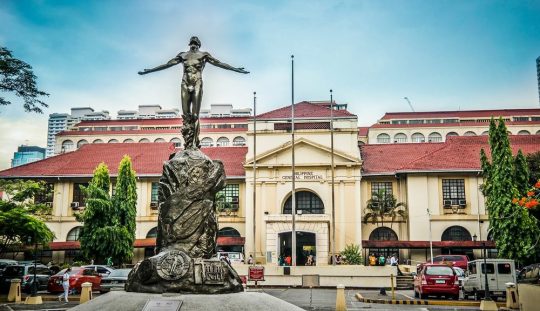
In 1924, she returned to the Philippines, becoming the field representative and nurse supervisor of the Philippine chapter of the American red cross.
None of this would have been able to happen had it been a few decades earlier - when the Philippines was under the colonial rule of the Spanish.
Under Spanish rule, Filipinos were only offered unequal opportunities rooted in gender by the education system implemented by the Spanish at the time.
Because of this, very few Filipino girls were permitted primary education given to them by Spanish charitable institutions.
Women were outright excluded from the University of Santo Tomas - the Spanish university in the Philippines

This was until 1879, when a school of midwifery was opened
When it came to specialised health care jobs, only midwifery was allowed for Filipino women to enter into
Traditionally, Filipino women would take on the role of the caretaker at home
Filipinos would also rely on indigenous healers

On the other hand, in Spanish medical institutions, usually Spanish Friars and Priests were the caretakers.
Sisters of Charity, along with a European nurse, arrived in the Philippines in 1862 to work at the San Juan de Dios hospital.

Spanish surgeons and male Filipino physicians would practice both generalised and specialised forms of healthcare.
In the 19th century, elite Filipino men (called ilustrados) were encouraged by the Spanish government to further their education in European countries.
Jose Rizal - a Filipino national hero and ilustrado was a doctor of medicine himself.
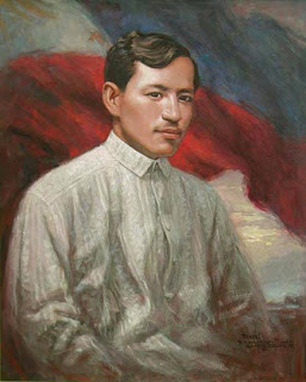
Filipino women were outside banned from these opportunities
US colonialism did implement some changes of opportunities that Filipino women were offered - as Montellano's story reveals.
The opportunities that were now offered were nursing, education - and travel opportunities to the U.S
These opportunities for both work and travel were closely linked.
Montellano's account demonstrates how like clockwork, the beginning of the U.S colonial rule marked significant transnational relations between the U.S and Filipino women
Montellano's socioeconomic and geographic mobility was enabled by these relations
Montellano was aided by American physicians and nurses in order to reach her employment goals in the United States
Montellano's experience in the US helped her secure an advanced nursing career upon her return to the Philippines.
Montellano notes that it was also her sheer determination and courage that helped her progress her career - even against her father's wishes.
The literature on women and imperialism challenges the perception of imperialism as masculine.
American women's participation in U.S. colonialism in the Philippines has been overlooked.
U.S. colonial nursing played a crucial role in American modernity and American women viewing themselves as civilised.
Filipino nurses' perspectives reveal the role of Filipinos and Americans in Philippine nursing.
Nursing and medicine legitimised U.S. colonial agendas and social hierarchies.
Western medicine is often seen as a humanitarian effort, making it difficult to critique its exploitative effects
Reynaldo Ileto noted that it was even difficult for the most nationalist Filipino writers to criticise the US sanitary regime as it saved countless Filipino lives.

Reynaldo Ileto, Filipino historian
The introduction of professional nursing in the Philippines had both liberating and exploitative aspects.
This chapter highlights a period of transnational mobility in Filipino American history.
American and Filipino nurses shaped Philippine nursing through travel, teaching, training, and practice.
This multidirectional mobility has been overlooked in Asian American histories.
The formation of a gendered labor force laid the foundation for significant migrations of Filipino nurses later in the twentieth century.
#the philippines#Philippines#philippine history#Filipino#Filipino history#Pinoy#US colonialism#us imperialism#U.S colonialism#U.S imperialism#US colonisation#U.S colonisation#American colonialism#American imperialism#American colonisation#America#USA#u.s#asia#Asian history#South East Asia#South East Asian history#History#Colonial history#Filipino American#Next post on this will feature heavy racism rip#asian american#Asian American history
17 notes
·
View notes
Text
#current events#tel aviv#palestine#gaza#news on gaza#free gaza#news update#palestine news#free palestine#war news#war on gaza#apartheid#settler colonialism#american imperialism#jerusalem#yemen#end the occupation#end the apartheid
4K notes
·
View notes
Text
If the U.S & Canada weren't afraid of their own Indigenous peoples getting our landback, they wouldnt be calling the military on us everytime we so much as peacefully protest to not have our water poisoned, but they do. They're terrified of us. That's part of WHY the U.S and Canada is supporting Isntreal, because it justifies their own colonial existence and reinforces colonialism here too.
#i do enjoy that post but the detail 'Native Americans don't pose a threat to The U.S and Canada' isn't correct#if we didn't pose a threat to these colonial governments then they wouldn't do anything when we push back
5K notes
·
View notes
Text
How To Hide An Empire Book in PDF - Once Digital
This book is also available for Free Download Here on ZLib.com
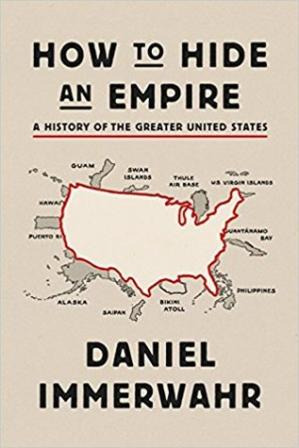
A pathbreaking history of the United States' overseas possessions and the true meaning of its empire
We are familiar with maps that outline all fifty states. And we are also familiar with the idea that the United States is an "empire," exercising power around the world. But what about the actual territories--the islands, atolls, and archipelagos--this country has governed and inhabited?
In How to Hide an Empire, Daniel Immerwahr tells the fascinating story of the United States outside the United States. In crackling, fast-paced prose, he reveals forgotten episodes that cast American history in a new light. We travel to the Guano Islands, where prospectors collected one of the nineteenth century's most valuable commodities, and the Philippines, site of the most destructive event on U.S. soil. In Puerto Rico, Immerwahr shows how U.S. doctors conducted grisly experiments they would never have conducted on the mainland and charts the emergence of independence fighters who would shoot up the U.S. Congress.
In the years after World War II, Immerwahr notes, the United States moved away from colonialism. Instead, it put innovations in electronics, transportation, and culture to use, devising a new sort of influence that did not require the control of space. Rich with absorbing vignettes, full of surprises, and driven by an original conception of what empire and globalization mean today,How to Hide an Empire is a major and compulsively readable work of history.
How To Hide An Empire -
Daniel Immerwahr
Categories: History - American Studies
Year: 2019
Publisher: Farrar, Straus and Giroux
Language: english
Pages: 528
ISBN 10: 0374172145
ISBN 13: 9780374172145
File: EPUB, 63.43 MB
#How To Hide An Empire#american colonialization#american colonialism#Daniel Immerwahr#american imperialism#american history#american studies
1 note
·
View note
Text
Some historical context for Olrox
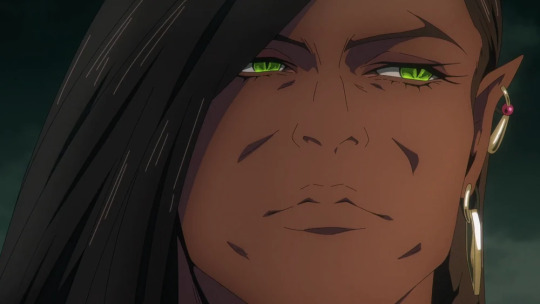
Okay, let me prephase this with one important message: Castlevania Nocturne made me really happy by making the plot all about colonialism, as colonialism and its fallout and how it influences us to this day is a topic that I am very passionate about. We do not talk enough about it. The US does not talk enough about it because it could make white people feel uncomfortable. And here in Germany we do not talk about it, because we act as if this had nothing to do with us at all.
But the show talks about it and I love it.
And I honestly also gotta say that I love that the BI_PoC character have a concrete cultural heritage. Olrox is Aztec, Annette is Yoruba, and Drolta is Egyptian. Other shows: Please take notes!
But let's talk Olrox, because he is so fucking interesting and amazing!
We know about him that he is Aztec and also that he is 250 years old. Or roughly that old by the time he kills Julia. Which would put either his birth or his turning somewhere around 1530.
Now, the fall of the Aztec Empire has a very exact date: August 13th, 1521. But you should keep in mind that this does not mean that on that day the Aztec's are extinct. To this day there is still 1,5 million people speaking Nahuatl, the language of the Aztecs, and preserving some of the Aztec cultural traditions. It was just that on that day the empire construct fell to Cortez and the Spaniad conquistadors and a lot of Aztecs went into exile to flee the genocide that Cortez was bringing upon them.
The question of course is: Was Olrox still human at this time or was he already a vampire? From his dialogue it is clear that he was at least alive and grown enough to remember the fall of the empire and the distruction Cortez and his men brought upon them. But you can bet it was very traumatic.
I also am assuming he was turned by a white man. Because so far my assumption is that vampirism is an old world thing that got brought to the new world through colonialism. (Mostly because in Dracula's court we do not see any new world vampires.)
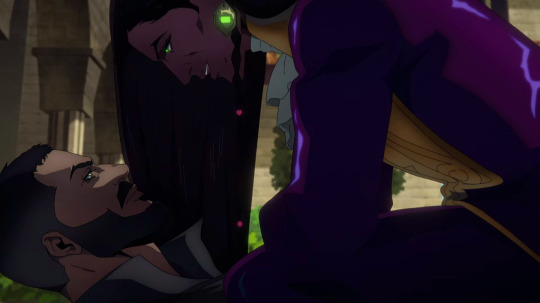
Now, the other interesting thing is what he says about his dead lover. The one Julia killed. So, first the "town in Massachusetts" he speaks about is clearly Stockbridge. Which was the town in which many Mohicans have settled during the colonial times, as well as other people from the Iroquois Nations. Now, it should be noted that the Mohicans were not part of the Iroquois alliance and in fact went to war with the Iroquois, but by the time colonialism really geared up there was some cooperation between the Mohicans and Iroquois.
Due to this they were in an alliance with the Oneida (who were part of the Iroquois) by the time of the Revolutionary war. Now, the Revolutionary War created a lot of conflict between the Iroquois nations, because they did not agree which side they should fight on. Of course both sides promised that they could keep their land, but the Mohawk, Onondaga, Cayuga, and Seneca did not trust the colonists and hence sided with the British, while the Oneida and Tuscarora (and through them also the Mohicans) sided with the Colonists.
And the dead lover clearly was among those siding with the colonists. Now, a quick refresher for the non-Americans (and the Americans who slept to history class, which is understandable). The Revolutionary War lasted from April 19, 1775 to September 3, 1783 (which, yes, also means that Julia and Richter probably were in the US during the war the entire time and the "evil" Julia was fighting probably was linked to it). And of course we all know how it ended for the Indigenous people: The colonists won, countless Indigenous folks died on both sides, only to get booted of their land soon after. The Oneida und Mohicans were made to move westwards not soon after the war ended. So, yes, Olrox would have seen that happen.
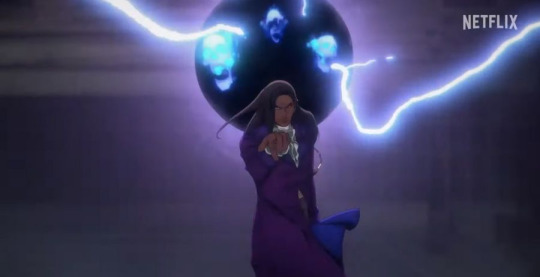
Now, an interesting thing in his dialogue was when Erzebet said: "We will create a new world." To which he replies: "I have heard that one before." And she says: "This time we are going to make it to last."
And the big question is to what this is refering. Is it refering to the colonialization or is it refering to the revolutionary war? Or something entirely different. In both cases it would be possible. And yes, the American Revolution definitely were claiming to create a new world. But was it that what he refered to or something else?
Well, never the less: Interesting character. Really good writing.
#castlevania#castlevania nocturne#castlevania netflix#castlevania nocturne spoilers#castlevania olrox#american history#history#colonialism#colonial history#aztec
4K notes
·
View notes